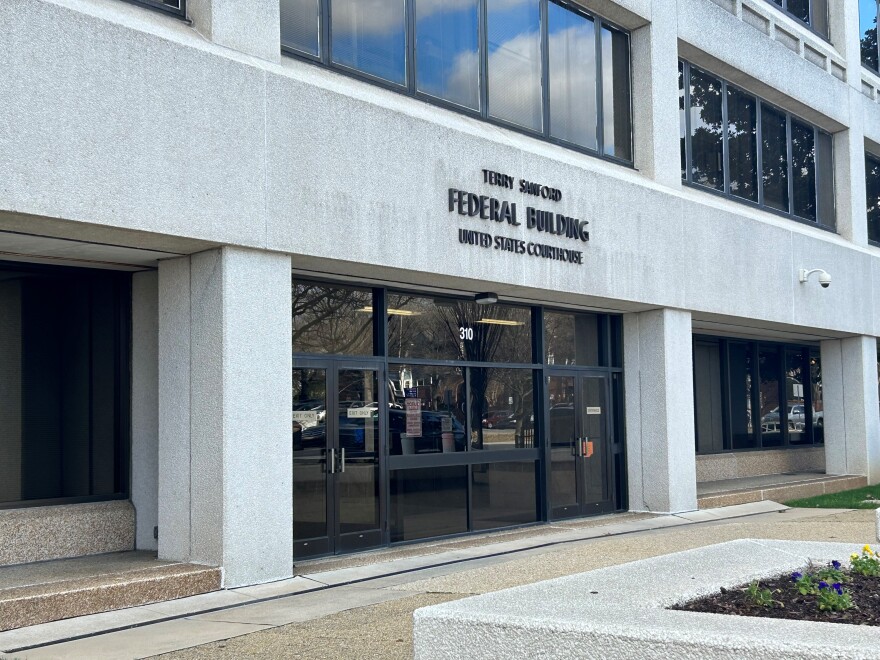A federal judge on Friday sentenced a North Carolina man to 25 years in prison for teaching someone how to make bombs meant to kill federal law enforcement officers.
A jury had found Christopher Arthur, 40, guilty in 2023 for the bomb-related charges, as well as for illegally possessing weapons, including improvised explosives found on his farm in Mount Olive, North Carolina.
Arthur, a U.S. Army and North Carolina National Guard veteran who served two tours of duty in Iraq, founded a company called Tackleberry Solutions, which created manuals and videos teaching so-called wartime tactics. In addition to the bomb-making instructions, Arthur's training manuals and videos included instructions for how to create "fatal funnels" meant to kill responding law enforcement with booby traps.
Arthur initially attracted the attention of the FBI in 2020 after some of his manuals were discovered in the possession of Joshua Blessed, a man who had attacked sheriff's deputies and police officers in upstate New York. Blessed, a truck driver, died after leading officers on a nearly two-hour high-speed chase and gun battle.
Arthur was arrested in January 2022 after he provided instructions for how to construct bombs to a confidential human source, referred to as "Buckshot" by federal prosecutors.
Buckshot initially contacted Arthur in May 2021, claiming that agents from the U.S. Bureau of Alcohol, Tobacco, Firearms and Explosives had confiscated some of his weapons. He told Arthur he wanted help preparing for the agents' expected return to his house.
At trial, Arthur said his manuals and training sessions were not meant to be used to launch attacks on law enforcement or the government. He said he believed that the country was headed into violent chaos, and he wanted to prepare people to defend themselves.
In a brief statement on Friday before his sentence, Arthur, dressed in orange jail clothes, warned that the country was going to soon fall into violence. "Buy food storage and prepare to defend yourselves and your family," he said.
Federal prosecutors charged Arthur with domestic terrorism enhancements related to the bomb-making instructions, charges the judge kept in place despite defense objections.
Arthur's federal public defender, Ed Gray, told the court that his client was a deeply religious man who simply wanted to keep his family safe from what Arthur believed was a coming apocalypse.
"He's not some sort of terrorist like Timothy McVeigh," Gray said, referring to the man who was executed for the bombing of the federal building in Oklahoma City in 1995. "He's a veteran who served two tours of duty in Iraq. It's tough to come back from that, and his focus had changed. There are unseen issues that should be addressed," Gray added, saying Arthur was open to therapy.
But before imposing Arthur's sentence, U.S. District Judge James C. Dever III said he took into account the defendant's service and his history as a former law enforcement officer.
"It's really sad, honestly," the judge said, referring to Arthur's military service and the families of those he was accused of targeting. "But it is serious, too. Just as every person who's ever had a loved one in combat knows, they pray every night that they'll come home. Families of law enforcement say the same prayer every day when their spouse, or mom or dad, go to work."







